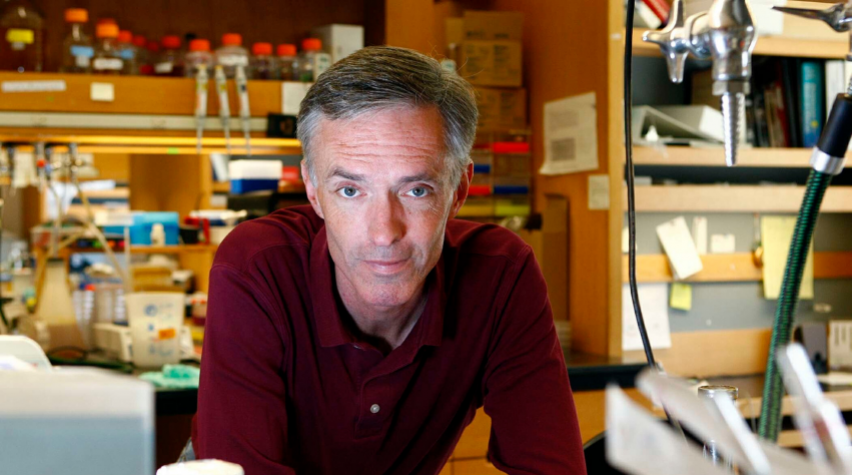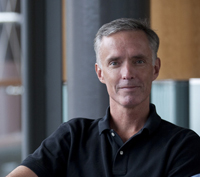
Disclosure: This post is sponsored by Synlogic and reflects their views, opinions, and insights.
Synlogic is a clinical-stage biotechnology company developing medicines for metabolic and immunological diseases in need of new approaches. Founded in Cambridge, Massachusetts, in 2014 by MIT professors Dr. Timothy Lu and Dr. James J. Collins, Synlogic became one of the first companies entirely focused on the development of new therapeutics based on the principles of synthetic biology. The result is a robust engine that now includes drug candidates, known as synthetic biotics, for rare and common diseases that span preclinical to late-stage. The company is presenting five posters at the 2022 SEED Conference in addition to giving an oral presentation during the “Therapeutic Bacteria” session on May 4.
Prior to SEED, I had a chance to talk with Dr. Collins about Synlogic and how synthetic biology can be used in medicine. You can learn more about the synthetic biology topics and experts at SEED by visiting the conference webpage.
Let’s start with Synlogic’s origin story. How and why did you start this company?
In May 2013, Peter Barrett, a partner at Atlas Ventures, invited Tim Lu and me to meet with his team to present potential investment opportunities in synthetic biology. Tim and I went together and independently presented the same two topics – the need for a picks-and-shovel company in synthetic biology and the tremendous potential for engineering bacteria to serve as living therapeutics. With regards to the latter, my team then was working with support from the Gates Foundation to engineer microbes to detect and treat cholera infections. At the end of our presentations, Peter stated that he and his team were tremendously excited to work with Tim and me on a newco in synthetic biology. They were not interested in creating a picks-and-shovel company but were highly intrigued by the idea of creating a synthetic biology therapeutics company.
We spent the next year working closely with Peter and his team, and together we started Synlogic in 2014 because we saw both a need and an opportunity. There is a wide range of diseases that, until recently, have seen very little in the way of effective treatments. We saw the potential to create a new class of therapeutics, based on living cells, that could address that gap. Essentially, we’re programming microbes to perform therapeutic functions in a patient’s body. These include consuming or breaking down toxic metabolic byproducts, as well as producing therapeutic molecules that might positively impact immune system function. These living medicines leverage the programmable powers of bacteria to potentially treat patients from the inside out. In addition, what makes these truly great potential treatment options is that they have no systemic absorption; they are taken orally offering a convenient delivery method; and they are designed to target validated biology.
Can you give us an example of what it could mean to treat patients with a synthetic organism?
Sure. Our lead program at Synlogic is focused on developing a treatment for phenylketonuria (PKU). PKU is a rare, inherited disorder that can cause very serious health problems. The key is an amino acid called phenylalanine, which is a byproduct of eating certain proteins, like those found in meat and cheese. Most people break down phenylalanine just fine, but people who suffer from PKU can’t, so it can build up in their blood. When it does, it can destroy neurons, which can lead to very bad outcomes such as delayed development and intellectual disabilities. The treatment we’re developing at Synlogic uses bacteria that we’ve engineered to break down phenylalanine, allowing the body to flush it out—hopefully providing a new treatment option for patients who are burdened by these debilitating health problems.
What would you describe as the largest technical hurdle that Synlogic has had to overcome from their founding up until now?
The largest technical hurdle that Synlogic has tackled is in engineering synthetic biotics to have sufficiently high functionality to be clinically effective in human patients. I am so impressed with what the team at Synlogic has accomplished in the clinic. We are remarkably well positioned to help realize the clinical potential of synthetic biology and help many, many patients. Synlogic is one of the most exciting stories in biotechnology, let alone synthetic biology.
What types of components would you like to see incorporated down the road as synthetic biology matures?
The potential for synthetic biology is tremendous, but generally underrealized. This is largely due to the fact that the field utilizes a relatively small number of well-characterized biomolecular components—on the order of only a few dozen biomolecular parts. This is equivalent to restricting an engineer at Intel to using a child’s electronics kit to build a state-of-the-art computer chip. The potential for synthetic biology, including synthetic biotics, could be much better realized if we more comprehensively harnessed the power and diversity of biology, and identified, developed, and optimized many hundreds of thousands of diverse biomolecular parts and components.
What is something that you’re working on in your lab that you’re most excited about?
We remain excited about using synthetic biology to create programmable cells to serve as living diagnostics and living therapeutics. For example, this past year, we engineered Lactococcus lactis, a generally regarded as safe microbe found in dairy products, to protect against antibiotic-induced gut dysbiosis and its associated pathologies. We just published this work in Nature Biomedical Engineering, and are now extending the platform to other drug classes and gut-related conditions.
What else does Synlogic have in the pipeline?
Our focus has been on metabolic and immunological diseases. One example is homocystinuria (HCU), which can cause obstruction of blood vessels, the dislocation of lenses in the eye, skeletal abnormalities, and other very serious problems. We have a drug candidate developed in collaboration with Ginkgo Bioworks that was designed using synthetic biology to cause bacteria to consume another amino acid that can cause these problems if it builds up. It’s in IND-enabling studies now, which means it could soon be ready for clinical trials, and we believe it will get there. We’re also engaged in a research collaboration with Roche to discover a new medicine to help people with inflammatory bowel disease. That project expands our pipeline in inflammation and, again, seeks to address an unmet therapeutic need using synthetic biotics.
It sounds like you think synthetic biology is going to transform medicine.
I think synthetic biology will emerge as one of the most important technologies of this century. It provides a tremendous opportunity to provide patients with new treatment options—options for which they have been waiting a very long time. More generally, synthetic biology is expanding our ability to harness the complex mechanisms of living organisms to address some of the world’s greatest challenges. The field is changing our society for the better, improving the lives of others, and contributing to the well-being of humankind. We live in exciting times.
Thanks so much for your time and insight, Jim.
My pleasure, thank you.
Learn more about 2022 Synthetic Biology: Engineering, Evolution & Design (SEED) and register today.

James Collins
Dr. Collins is the Henri Termeer Professor of Medical Engineering & Science and Professor of Biological Engineering at MIT and the recipient of a MacArthur “Genius” Award.
Disclosure: This post is sponsored by Synlogic and reflects their views, opinions, and insights.


